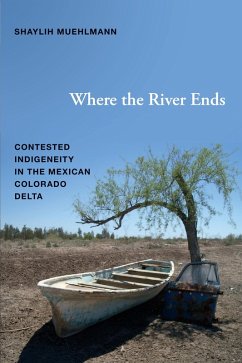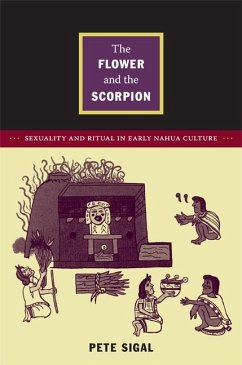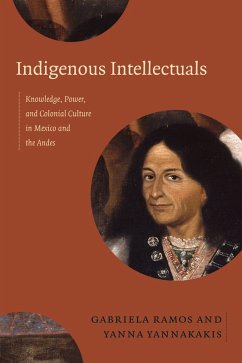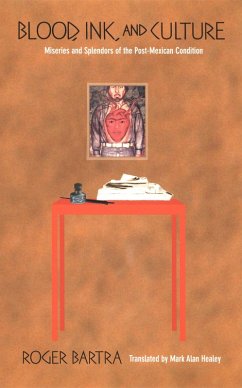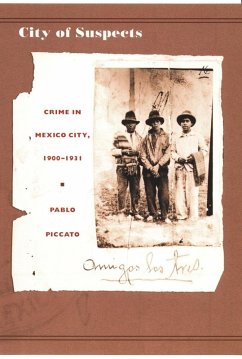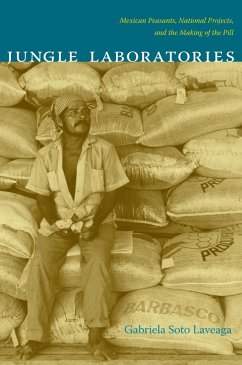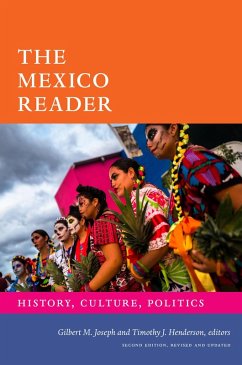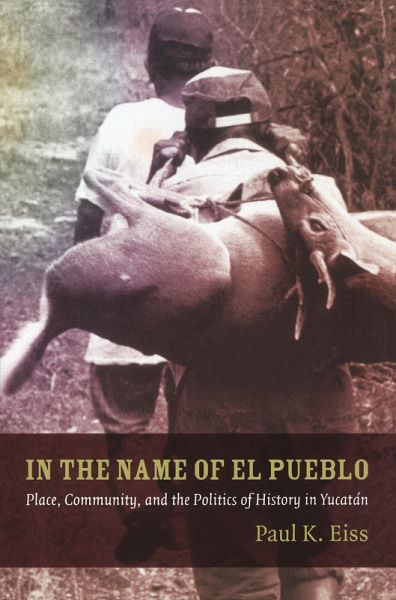
In the Name of El Pueblo (eBook, PDF)
Place, Community, and the Politics of History in Yucatan
Versandkostenfrei!
Sofort per Download lieferbar
144,95 €
inkl. MwSt.
Weitere Ausgaben:

PAYBACK Punkte
72 °P sammeln!
The term "e;el pueblo"e; is used throughout Latin America, referring alternately to small towns, to community, or to "e;the people"e; as a political entity. In this vivid anthropological and historical analysis of Mexico's Yucatan peninsula, Paul K. Eiss explores the multiple meanings of el pueblo and the power of the concept to unite the diverse claims made in its name. Eiss focuses on working-class indigenous and mestizo populations, examining how those groups negotiated the meaning of el pueblo among themselves and in their interactions with outsiders, including landowners, ...
The term "e;el pueblo"e; is used throughout Latin America, referring alternately to small towns, to community, or to "e;the people"e; as a political entity. In this vivid anthropological and historical analysis of Mexico's Yucatan peninsula, Paul K. Eiss explores the multiple meanings of el pueblo and the power of the concept to unite the diverse claims made in its name. Eiss focuses on working-class indigenous and mestizo populations, examining how those groups negotiated the meaning of el pueblo among themselves and in their interactions with outsiders, including landowners, activists, and government officials. Combining extensive archival and ethnographic research, he describes how residents of the region have laid claim to el pueblo in varied ways, as exemplified in communal narratives recorded in archival documents, in the performance of plays and religious processions, and in struggles over land, politics, and the built environment. Eiss demonstrates that while el pueblo is used throughout the hemisphere, the term is given meaning and power through the ways it is imagined and constructed in local contexts. Moreover, he reveals el pueblo to be a concept that is as historical as it is political. It is in the name of el pueblo-rather than class, race, or nation-that inhabitants of northwestern Yucatan stake their deepest claims not only to social or political rights, but over history itself.
Dieser Download kann aus rechtlichen Gründen nur mit Rechnungsadresse in A, B, BG, CY, CZ, D, DK, EW, E, FIN, F, GR, HR, H, IRL, I, LT, L, LR, M, NL, PL, P, R, S, SLO, SK ausgeliefert werden.




